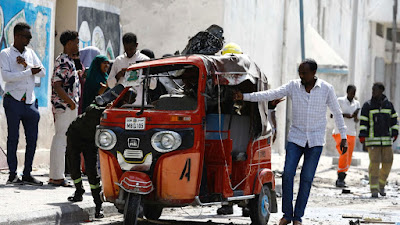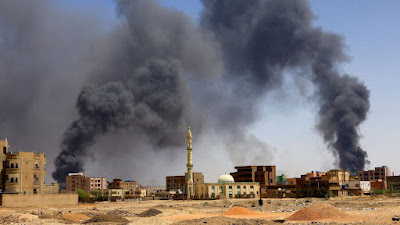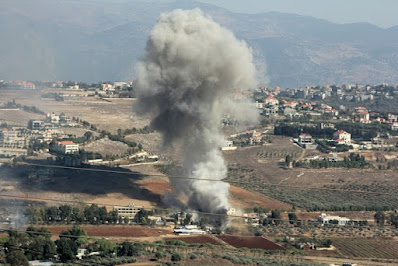Snippets from Hezbollah Deputy Chief Sheikh Naim Qassem’s Speech After Leader’s Assassination
Monday, 30 September 2024 8:33 PM
By Alireza Hashemi
Hezbollah’s deputy secretary-general, Sheikh Naim Qassem, has vowed that the resistance is ready to confront any Israeli ground incursion in southern Lebanon, in his first speech since the movement’s longtime leader Sayyed Hassan Nasrallah was martyred in an Israeli airstrike on Friday.
In his speech on Monday, Sheikh Qassem highlighted that America is supporting Israel with all its capabilities, noting that Israel commits massacres in all areas of Lebanon, trying to leave no house without traces of aggression.
Despite the challenges, he assured that the resistance will not back down from Sayyed Nasrallah’s positions and that the movement is following alternative plans for its leaders.
He also mentioned that they will choose a new Secretary-General at the earliest opportunity.
Here are snippets from his speech:
We have lost a brother, a beloved, and a leader, His Eminence the Secretary-General Sayyed Hassan Nasrallah, may God have mercy on him.
This great man remained in the field of jihad, mission, and mobilization until the moment of his martyrdom.
Sayyed Nasrallah was devoted to Islam, a lover of Muhammad (PBUH) and the family of Muhammad, a follower of Imam Khomeini's path, and a follower of Imam Khamenei's path.
He was a leader of the free Mujahideen, with his absolute priority being Palestine and al-Quds within the framework of Islamic unity.
Israel commits massacres in all areas of Lebanon, and America supports Israel with all its capabilities and supports it in all its massacres.
If Israel thinks that its internationally open hand and its determination to be brutal and aggressive will help it achieve its goals, it is delusional.
With days and pains, we continue, and we are a people of faith and have trust in God's promise of victory.
The path that His Eminence the Secretary-General raised and supervised is a continuous path, and Hezbollah continues with its goals and its field of jihad.
The command and control system and the Mujahideen will continue what you were following, O Secretary, with the same precision and the steps you drew.
The alternative plans you put in place for individuals and alternative leaders, we are following them, and everyone is present in the field.
Despite the loss of several leaders, the attacks on civilians, and the great sacrifices, we will not budge an inch from our positions.
The Islamic resistance will continue to confront the Israeli enemy, supporting Gaza and Palestine, and defending Lebanon and its people.
Watch what happened after His Eminence's assassination; the resistance operations continued at the same pace and increased.
Ma'ale Adumim was struck, which is 150 km from the Lebanese border, and Haifa was struck, and the enemy admitted that a million people entered shelters because of just one missile, and the rope is on the pulley.
I want to inform you that what we are doing is the minimum as part of the plan to follow up the battle. We know the battle may be long, and the options are open before us, and we will face any possibility.
Watch what happened after His Eminence's assassination; the resistance operations continued at the same pace and increased.
We are ready if the Israeli decides to enter by land; the resistance forces are ready for ground engagement.
We have prepared and equipped ourselves, and with reliance on God, we are confident that the enemy will not achieve its goals, and we will emerge victorious.
Our people and loved ones, the calamity is great, the sacrifices are significant, and the enemy works to strike the military capability of the resistance and strike civilians.
We are doing everything we can and addressing the assassination of cadres with alternative resources. Israel has not been able to reach our military capability, and what its media says is a dream they have not reached and will not reach.
Our capability is strong and great, and he is going mad because of his inability to reach these capabilities, and we have full readiness, thank God, and we continue.
These great people who stood while conducting difficult tasks will not be shaken now, and we are confident in you, O people of sacrifice and redemption.
We are now following the leadership and managing the confrontation according to the party's structure, and we have done the necessary work to replace what happened as a problem.
We will choose a Secretary-General for the party at the earliest opportunity according to the party's established mechanism for selection. We will fill the leadership and positions firmly, and be assured that the options will be easy.
If anyone is waiting to see what will happen, I tell you that what is happening is under normal and natural follow-up. I thank the Lebanese who showed honorable national unity in confronting the crimes of Israel and America.
The unity that manifested among all sects and families in all regions is the cornerstone of Lebanon's pride.
I thank the Lebanese government, political forces, municipalities, and all those who worked for standing with the truth.
We are in one boat, but rest assured, God willing, victory is ours, and we have prepared what we have, and we need patience.

























